 |
|
Herbal Suet 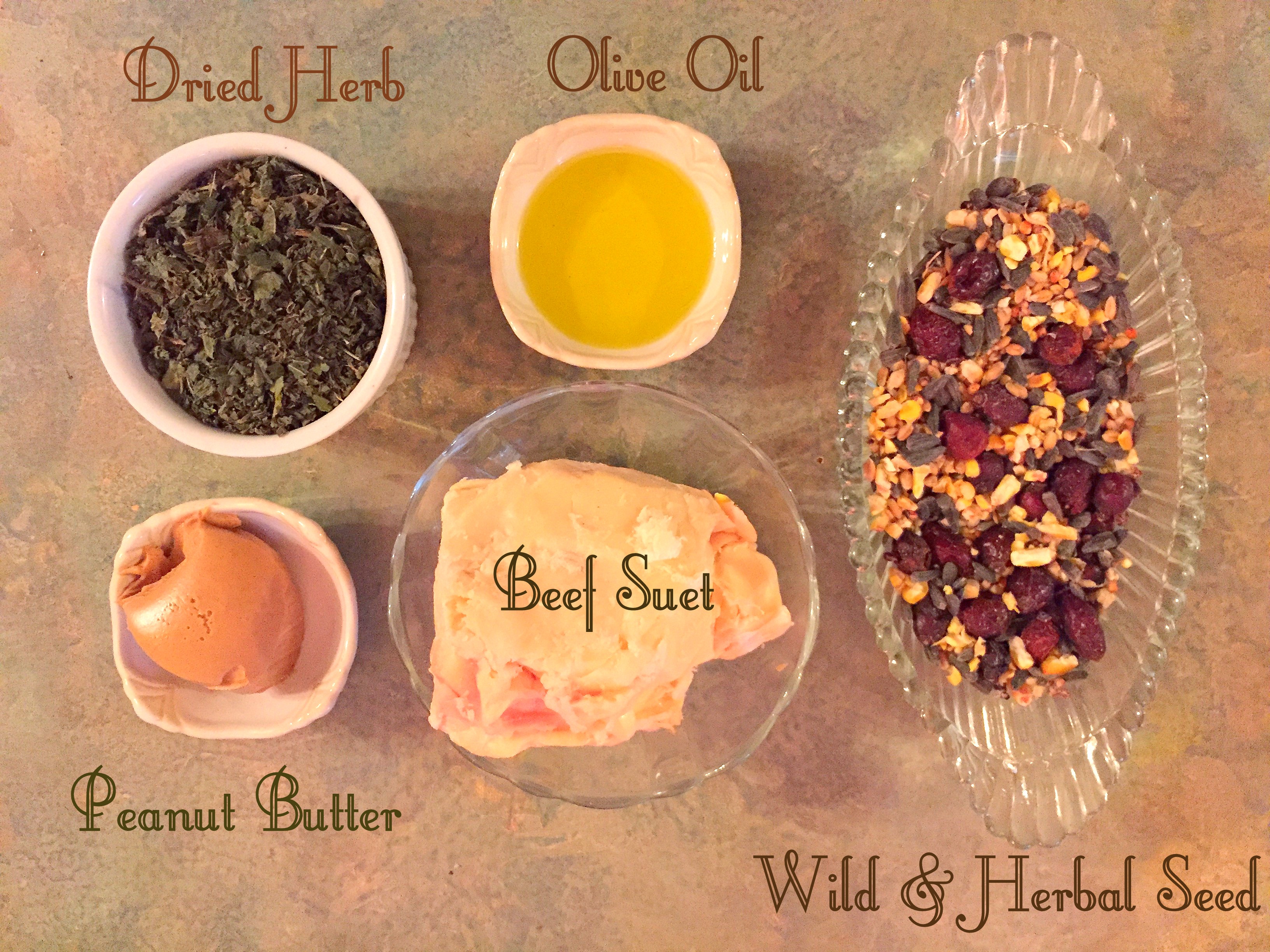 Oil from extracted oils or from raw fat like suet, can be a valuable addition to your flock's diet. Through digestion,
it generates efficient energy that will create internal body warmth that will work for hours. Although fat is added to commerical feed, there is not enough
extra percentage there to burn to help keep your flock warm. Many of us also mix our own feed with dry or fermented grains and that does not add any fat at all. Your flock can
benefit from whole seed like sunflower and corn that have their own oil. Preparation and Application 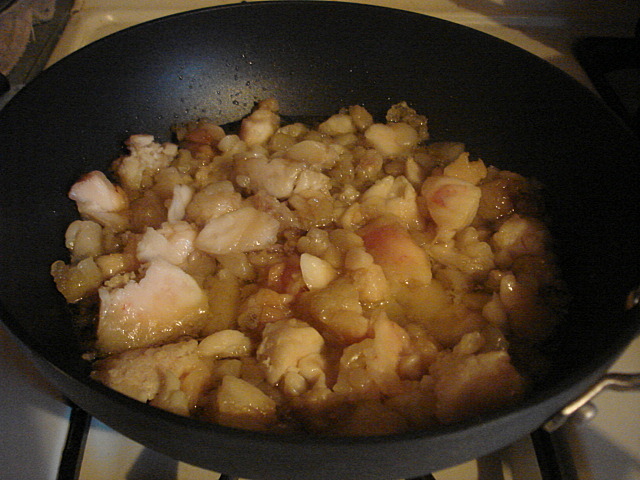 Strain the meat bits and tissue from the rendered suet. 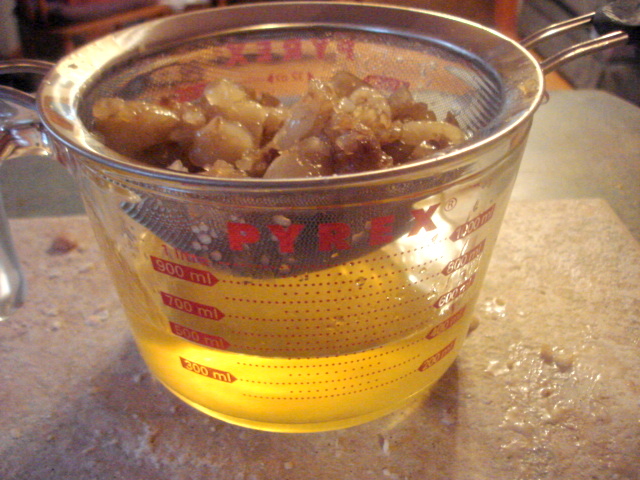 I like to add organic peanut butter which is runny to begin with. You can use olive oil, or any other number of oils. For each batch, I mix 3 cups rendered suet, and 1 cup peanut butter. This is to add some unsaturated fat to the saturated fat for better digestion. You can also add 1 teaspoon of cod liver oil if you want to add Vitamin D. 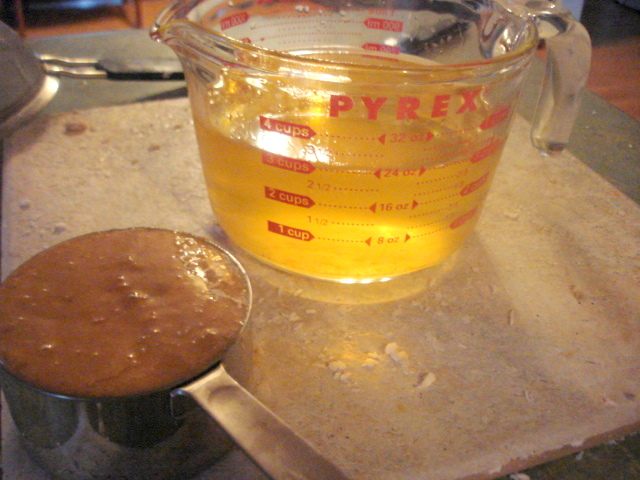 Here is where you get to play! You can mix in any number of things in; dried herbs, nuts, dried fruit, wild birdseed, sunflower seed, raisins etc. The consistency can be as runny or thick as you like, so long as you can get it into a mold. The suet will harden as it cools and bind it all together. 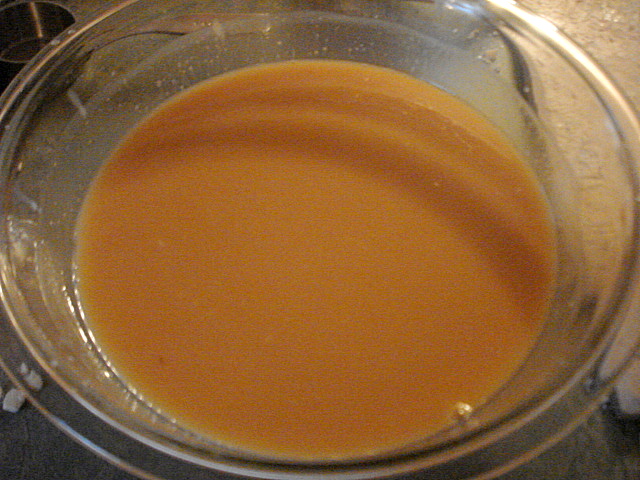 I mixed in quick oats, ground up rosehips, burdock root, dried dandelion leaves. 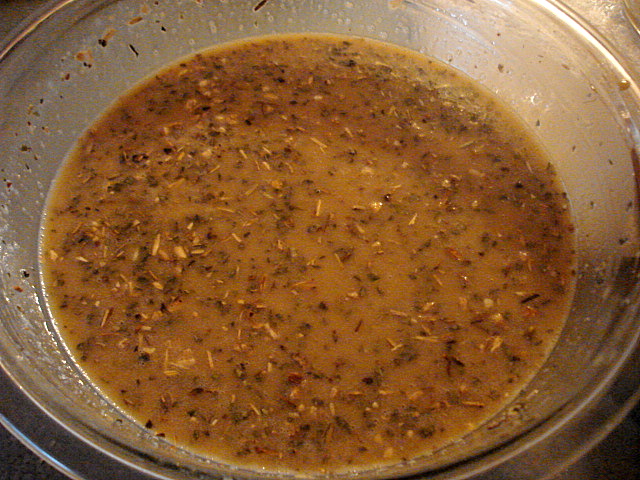 If you are worried about rancidity for long term storage, you can either freeze your cakes, or add 1tsp slippery elm bark powder to each 1lb of fat, then store in the fridge or a cool place. Slippery elm bark is a trick I learned from Jim McDonald that should prevent rancidity in oils. This is also useful to know for herbal oils that we make. I re-use molds from commercial suet that I have bought because I used the suet cages that they fit. 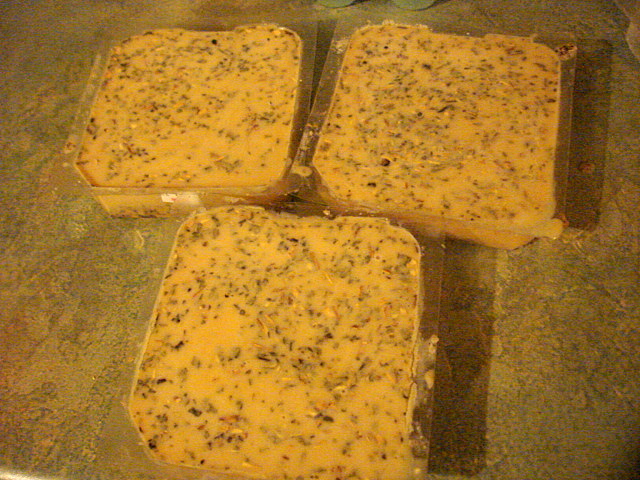 Suet with quick oats and ground up cayenne pepper. It is a pretty shade of pink! 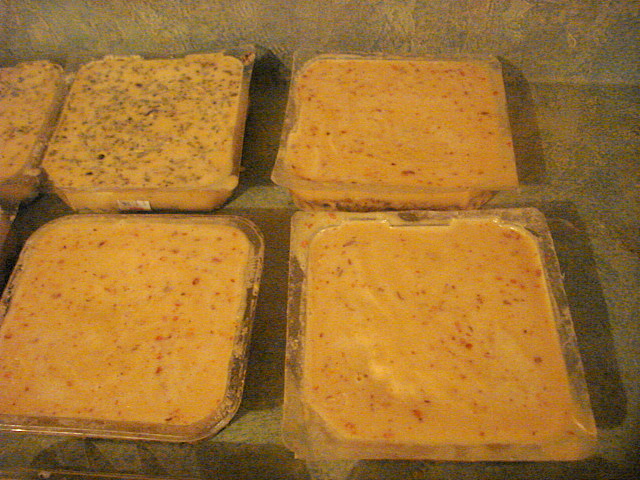 Suet with quick oats and raisins. I put them in whole because I thought they might clog my grinder. 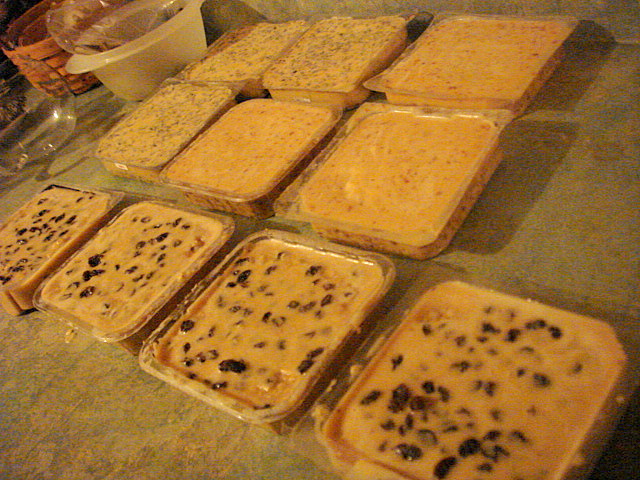 |